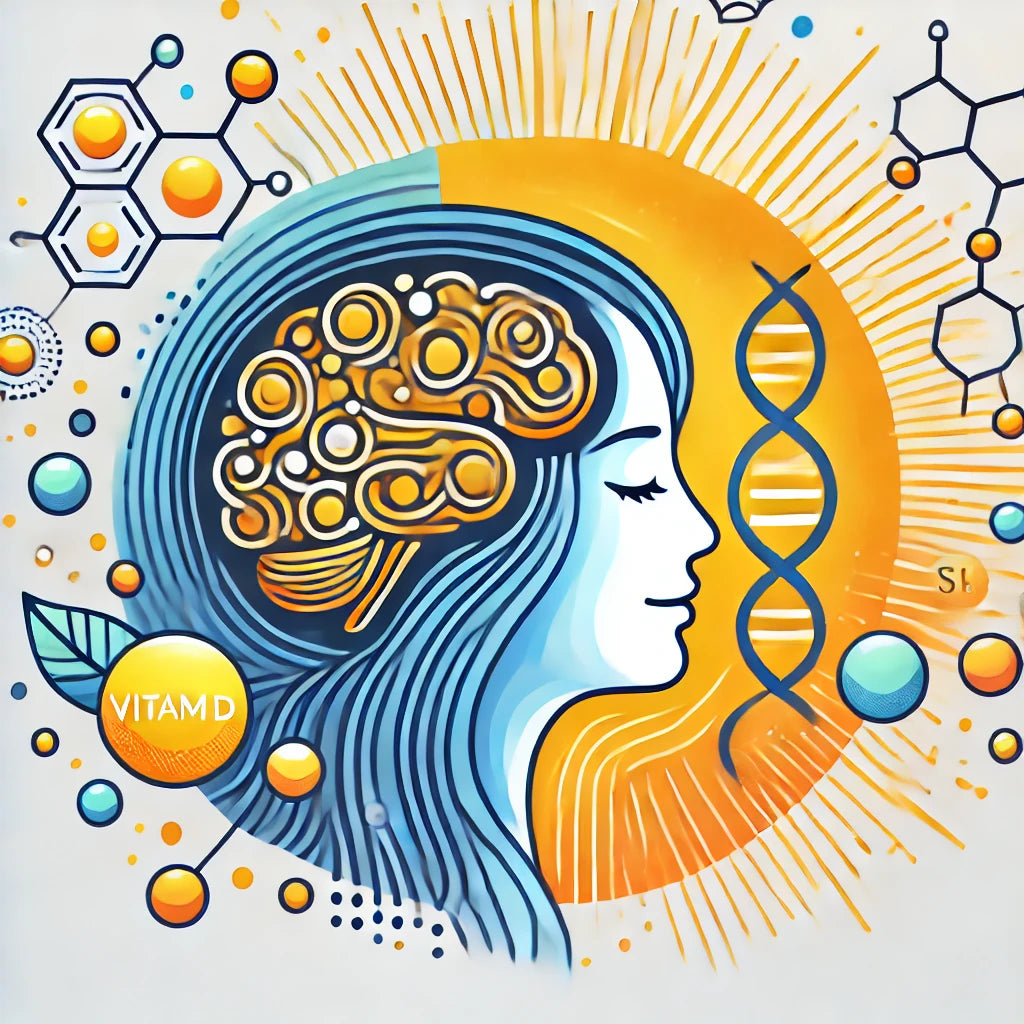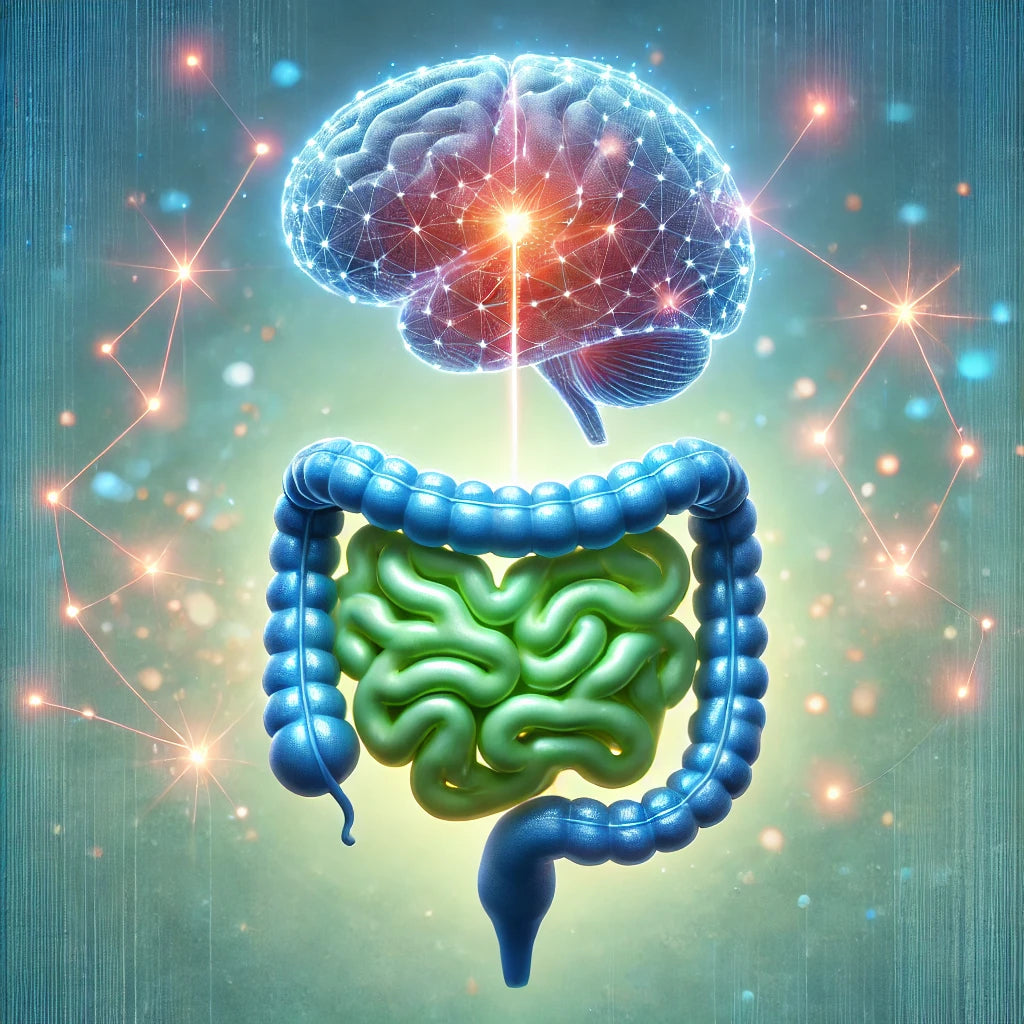News — serotonin
Seasonal Affective Disorder: Symptoms, Causes & Effective Treatments
bright light therapy circadian rhythm depression lifestyle tips light therapy melatonin mental health mental wellness mood support natural remedies SAD seasonal affective disorder seasonal mood disorder serotonin summer SAD supplements for SAD symptoms of SAD therapy for SAD vitamin D winter blues winter depression
Have you ever noticed your mood taking a dip as the days grow shorter and winter sets in? For many, this is more than just a case of the winter blues—it’s a real medical condition called Seasonal Affective Disorder (SAD). Millions of people worldwide experience SAD each year, but with the right knowledge and strategies, it's possible to manage symptoms and feel better all year long.
In this guide, we’ll explore the key symptoms of Seasonal Affective Disorder, dig into the root causes behind it, and outline effective treatment options that can help restore balance and happiness even during the darkest months. Whether you or someone you know is struggling with SAD, understanding the condition is the first step to regaining a brighter outlook.
Laugh Your Way to Better Mood: The Power of Laughter Therapy
anxiety reduction benefits of laughter cardiovascular health dopamine endorphins finding a laughter therapist happiness how to laugh more humor therapy immune system laughter exercises laughter therapy laughter yoga mental health mood booster pain management physical health serotonin social connection stress relief well-being
Life can be stressful, and it's easy to get caught up in the daily grind. But what if there was a simple, natural way to boost your mood, reduce stress, and improve your overall well-being? The answer might surprise you: laughter.
Laughter therapy, also known as humor therapy, is a powerful tool that harnesses the transformative power of laughter to promote physical and mental health. While it might seem counterintuitive, the act of laughing can have a profound impact on our bodies and minds, releasing endorphins, reducing stress hormones, and boosting our immune system.
Sunshine and Serotonin: The Connection Between Vitamin D and Mood
boost serotonin naturally depression happy brain mental health mental wellness mood seasonal affective disorder serotonin serotonin and mood sunlight and mood sunlight benefits sunshine vitamin vitamin D vitamin D deficiency vitamin D for depression vitamin D supplements
Have you ever noticed that your mood improves on a sunny day? There’s a scientific reason behind this, and it involves vitamin D. Known as the "sunshine vitamin," vitamin D is produced in the skin when exposed to sunlight and plays a crucial role in maintaining physical health. However, what many people don’t realize is that it also has a profound impact on mental well-being. Numerous studies have linked vitamin D deficiency to mood disorders such as depression, anxiety, and seasonal affective disorder (SAD).
Vitamin D influences the production of serotonin, the brain's "feel-good" chemical, which helps regulate mood, appetite, and sleep. When vitamin D levels are low, serotonin production can decrease, leading to feelings of sadness, fatigue, or even depression. In this guide, we will explore the fascinating connection between vitamin D and mood, the signs of deficiency, and how to maintain healthy levels to support mental well-being.
St. John's Wort: A Natural Remedy for Depression - Benefits, Uses, and Safety
alternative medicine Anxiety Relief depression treatment herbal antidepressant herbal supplements hypericum perforatum mental health mood enhancement natural antidepressants natural remedy for depression serotonin serotonin reuptake St. John's Wort St. John's Wort for anxiety St. John's Wort research St. John's Wort vs antidepressants St. John’s Wort benefits St. John’s Wort dosage St. John’s Wort interactions St. John’s Wort side effects
Depression affects millions of people worldwide, and while traditional treatments such as medication and therapy are effective, there has been a growing interest in natural remedies. One of the most popular herbal supplements in this category is St. John's Wort. This centuries-old plant has been used for various ailments, but its potential for treating depression has gained considerable attention in recent years. But what exactly is St. John's Wort, and how does it work in the battle against depression?
As a natural remedy, St. John’s Wort offers an alternative for those looking to avoid synthetic medications. With its roots in ancient European medicine, this herb has been historically used for everything from wound healing to mood disorders. Its modern-day use, however, centers primarily on its ability to alleviate symptoms of mild to moderate depression. Understanding how it works, what the research says, and its potential benefits and side effects can provide invaluable insight for anyone considering this supplement as part of their mental health journey.
Probiotics and Mental Health: The Gut-Brain Connection
Anxiety Relief Bifidobacterium cognitive function depression support gut health gut microbiome gut-brain connection healthy digestion holistic mental health Lactobacillus mental health neurotransmitters probiotics probiotics and anxiety probiotics and depression probiotics benefits probiotics for brain health serotonin stress management vagus nerve
The connection between gut health and mental well-being has become a fascinating area of research in recent years. As scientists continue to explore the complexities of the human body, the gut-brain axis has emerged as a key player in maintaining both physical and mental health. One of the most exciting discoveries in this field is the impact of probiotics—often referred to as "good bacteria"—on mental health. While probiotics are commonly associated with digestive health, their influence extends far beyond the gut, potentially affecting mood, anxiety, and even cognitive function.
Understanding the gut-brain connection is crucial in appreciating how probiotics may serve as a bridge between a healthy gut and a balanced mind. The gut and brain are in constant communication, with the gut often being referred to as the "second brain" due to its extensive network of neurons and its ability to produce neurotransmitters like serotonin. This intricate relationship suggests that by nurturing gut health, we can positively influence our mental state, making probiotics a promising avenue for mental health support.





